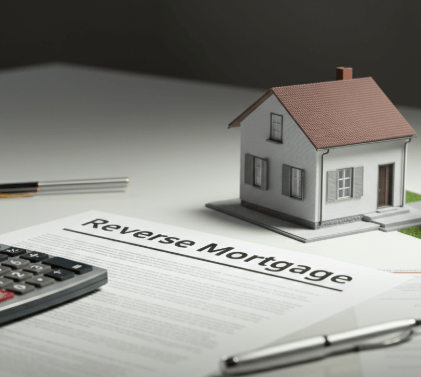When faced with the complex realities of inheritance, many may wonder about the implications of inheriting a property tied to a financial agreement. This blog will delve into what happens if you inherit a house with a reverse mortgage. Understanding reverse mortgages’ terms and conditions is crucial for heirs, as it can significantly impact your financial future. Read on as we explore the essential factors to consider when you inherit a house with a reverse mortgage and what steps you can take to navigate this challenging situation.
Steve Daria and Joleigh, seasoned real estate investors, highlight the significance of conducting comprehensive research before inheriting a house with a reverse mortgage. They advise potential heirs to consult with a financial advisor to fully understand the ramifications of the outstanding loan and possible repayment obligations. Heirs can strategically align their financial goals by exercising foresight and leveraging knowledge to make well-informed decisions.
Understanding Reverse Mortgages
Before getting into the specifics, it’s vital to understand what a reverse mortgage is.
Unlike traditional mortgages, where the homeowner makes payments to a lender, a reverse mortgage permits homeowners aged 62 and above to change part of their home equity into cash.
The loan is repaid when the borrower puts the home for sale, moves out for good, or passes away.

Reverse mortgages are made to help older homeowners with no monthly mortgage payments, but they accrue interest over time.
What Happens When You Inherit a House with a Reverse Mortgage?
When the owner with a reverse mortgage passes away, the inheritors are faced with decisions.
The lender will want to recoup the loan amount, which includes the initial borrowed funds plus interest and fees.
Here are the typical scenarios:
- Pay Back the Reverse Mortgage: Heirs can pay off the reverse mortgage balance, including interest, to keep the home.
- Sell the House: Selling the property is another option. The sale proceeds go toward the loan repayment.
- Deed the House to the Lender: If the reverse mortgage exceeds the home’s value, heirs can hand the property over to the lender through a deed-in-lieu of foreclosure.
Get An Offer Today, Sell In A Matter Of Days…
Key Considerations for Heirs
Here are the key considerations when you inherit a house with a reverse mortgage:
Assessing the Home’s Value
Evaluating the property’s current market value is a primary step.
This will help you decide whether it’s financially viable to keep the house or sell it.
Consider the following:
- Comparable Market Analysis (CMA): Use CMAs to compare similar homes in the area and get an estimate of your property’s worth.
- Real Estate Agents: Hiring a professional can provide insights and precise valuations.
- Online Tools: Platforms like Zillow or Redfin offer free estimates but may lack accuracy.
Determining Loan Balance
Understanding the outstanding reverse mortgage balance is a critical consideration.
Contact the lender to obtain the payoff amount, which includes interest and any applicable fees.
- Annual Statements: Reviewing the annual statements provided by the lender offers a comprehensive overview of your mortgage account, including payment history, interest accrual, and any changes in escrow balances.
- Loan Agreement: This document outlines your obligations as a borrower and provides details on what happens in various scenarios, such as late payments or early repayment.
Evaluating Financial Capability
Determine whether your financial situation allows you to pay off the mortgage balance or whether selling the property is a more practical choice. Consider:
- Personal Savings: Assess your savings and liquidity.
- Loan Options: Explore financing options, such as securing a traditional mortgage.
- Family Contributions: Discuss with other family members who may wish to contribute.
Strategies for Managing the Inheritance
Here’s how you can manage the inheritance:
Selling the Property
Selling the house is a common strategy if the mortgage balance exceeds the home’s value.
Here are some tips:
- Real Estate Agent: Hire an experienced agent to maximize your profit potential.
- Market Timing: Enter the market when conditions are favorable, such as during high demand seasons.
- Property Condition: Make necessary repairs and improvements to increase the home’s appeal.
Keeping the House
If you decide to keep the property, ensure you have a plan for managing the financial commitment. Options include:
- Paying Off the Loan: Use personal funds or secure a traditional mortgage to pay the lender.
- Refinancing: Refinance into a new loan with better terms if eligible.

Negotiating with Lenders
In some cases, negotiating with the lender can lead to good outcomes, such as reduced interest rates or extended payment terms. Be prepared with:
- Financial Records: Show proof of your financial situation.
- Appraisal Reports: Present appraisals that support your case for a lower repayment amount.
Frequently Asked Questions
Explore common inquiries regarding the implications and processes involved when you inherit a house with a reverse mortgage.
Can I refinance a reverse mortgage?
Yes, refinancing a reverse mortgage into a traditional mortgage is possible, provided you meet the lender’s requirements.
This process involves converting the reverse mortgage into a new loan with different terms, which could offer more favorable conditions or a lower interest rate.
Refinancing can allow you to keep the property and manage the mortgage under a new set of terms, possibly reducing your monthly payments.
What if the home’s value is less than the reverse mortgage?
If the home’s value is less than the amount owed on the reverse mortgage, the situation typically results in a shortfall.
In this case, heirs have the option to sell the house and use the proceeds to pay down the loan.
If the sale proceeds are insufficient to pay the full amount of the reverse mortgage, the U.S. government insurance associated with the reverse mortgage will cover the remaining balance, ensuring that the lender receives the difference.
How long do heirs have to settle a reverse mortgage?
Heirs generally have between 6 to 12 months to settle a reverse mortgage after the homeowner passes away, although this timeframe can vary based on the lender’s policies and specific circumstances.
During this period, heirs must decide whether to repay the loan, sell the property, or potentially remortgage the reverse mortgage into a standard mortgage.
The lender may offer extensions if needed, but it’s crucial for heirs to act promptly to avoid complications or additional interest accrual.
Conclusion
Inheriting a house with a reverse mortgage has unique challenges that needs careful consideration and strategic planning. From understanding the financial implications to deciding the best path forward—whether it’s selling, keeping, or negotiating with lenders—heirs must remain informed and prepared. If this situation applies to you, consider consulting with financial or real estate experts to explore your options thoroughly.
**NOTICE: Please note that the content presented in this post is intended solely for informational and educational purposes. It should not be construed as legal or financial advice or relied upon as a replacement for consultation with a qualified attorney or CPA. For specific guidance on legal or financial matters, readers are encouraged to seek professional assistance from an attorney, CPA, or other appropriate professional regarding the subject matter.

